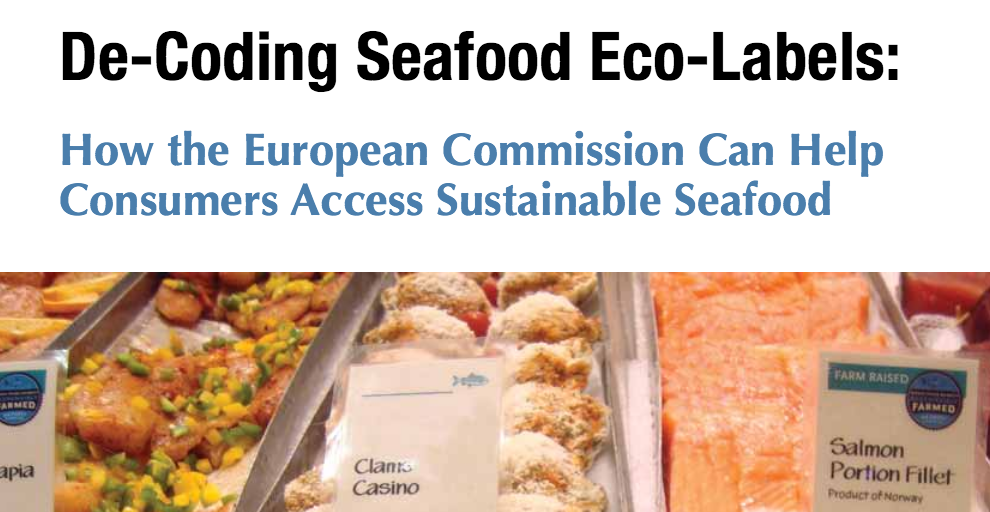De-Coding Seafood Eco-Labels: How the European Commission Can Help Consumers Access Sustainable Seafood
This report proposes that in order to provide consumers with much-needed, unbiased and well-regulated information, the European Commission must develop and enforce strict criteria for interpreting the FAO guidelines on aquaculture and fisheries certification. Until that time, consumers can use our guidelines and recommendations for safer and more sus- tainable seafood choices at the end of this report.
DOWNLOAD PDF
In light of these questions, there is a demand for straightforward guidance on seafood. To address the sustainability ques- tions surrounding fish consumption, a number of certification programs have developed sets of standards and labels to evaluate and then market “environmentally friendly” or “sustainably produced” fish.
Choosing the best fish to eat can be complicated. While you’re browsing the seafood counter or restaurant menu you may wonder whether certain fish are safe and sustainable. In many cases, the more a person knows, the more questions arise: Is this wild or farmed? Local or imported? Environmentally responsible and humane? High in mercury? Tainted with anti- biotics and chemicals?
Meanwhile, many retailers have begun sourcing their seafood predominately or exclusively from fisheries or companies that have been certified with eco-labels in an effort to promote their environmental awareness about seafood sustain- ability to consumers. Many of these labels claim to be in line with the United Nations Food and Agriculture Organization (FAO) guidelines for aquaculture or fisheries certification, but are they? The European Commission has indicated it will make an effort to enforce these guidelines.
To determine what eco-labels really mean, Food & Water Europe examined various seafood certification programs and found that, unfortunately, labels do not always represent what consumers expect.
Our research reveals a variety of flaws and inadequacies associated with the eco-labels analyzed and suggests that private labels may not be the most appropriate means to convey neutral, credible information about seafood. While the intent to raise awareness about sustainability among seafood suppliers and fish farms is admirable, it is questionable whether labels are actually increasing sustainability in the marketplace or meeting consumers’ demand for reliable information on seafood. In fact, some labels with industry connections may actually be more successful at convincing consumers that the products found in markets are “sustainable,” than at offering the neutral guidance consumers truly seek.
This report proposes that in order to provide consumers with much-needed, unbiased and well-regulated information, the European Commission must develop and enforce strict criteria for interpreting the FAO guidelines on aquaculture and fisheries certification. Until that time, consumers can use our guidelines and recommendations for safer and more sus- tainable seafood choices at the end of this report.
Findings
- The eco-label certification programs reviewed in this report demonstrate inadequacies in regard to some or all of the following: environmental standards, social responsibility and community relations, labor regulations, international law, and transparency.
- Eco-labeling programs may cause increased public acceptance of products from controversial farming operations such as coastal shrimp ponds and open-water aquaculture.
- Eco-labeling programs fail to promote local seafood options or account for the miles that imported seafood travels.
- Existing eco-labels have the potential to override the authority of governments, particularly in developing countries.
- The eco-labels examined fail to meet FAO criteria for eco-labeling and certification programs for wild fisheries and aquaculture.
- Financial constraints have affected the ability of some otherwise eligible fisheries to attain certification.
- For some programs, there is a conflict between the intent to promote change within a certain fishery and the labeling program, which can place a seal of approval on a product from a certified fishery before it has made conditional improvements in ecological performance to actually meet the standards for the label.
- Eco-labels may negatively impact forage fish populations, which could damage marine food webs and harm food security in developing countries.



